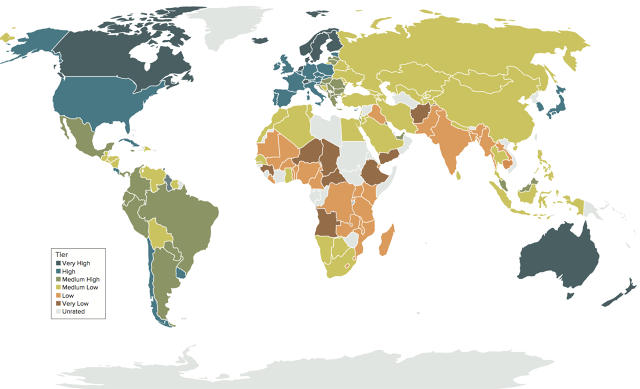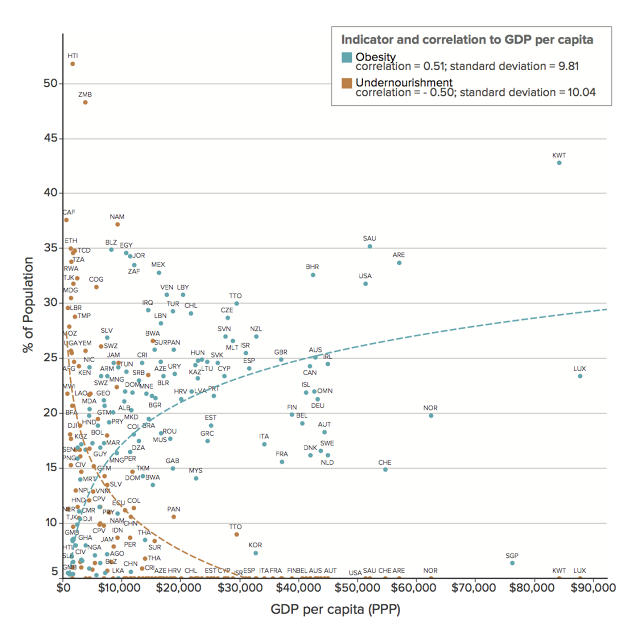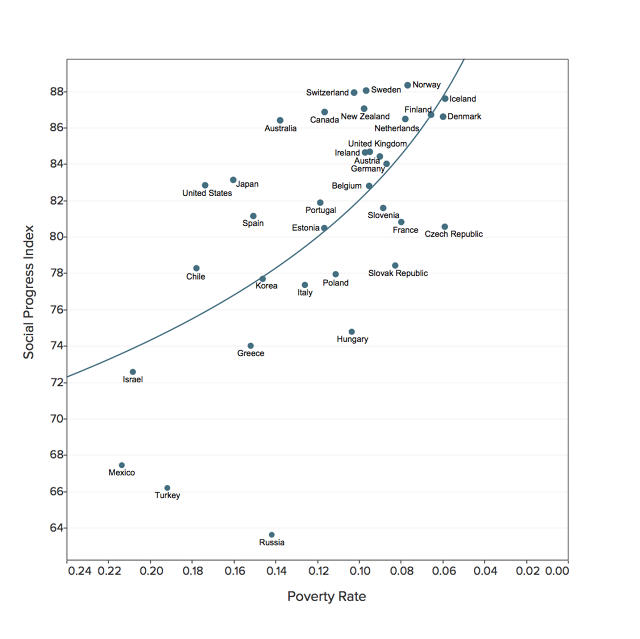The 10 Countries With The Highest "National Well-Being"
It's time to get rid of GDP as a measure of a country's success.
Economic measures of success like gross domestic product (GDP) are a crude way to judge countries. They tell you about the level of economic activity, but not necessarily whether nations are bettering people’s lives.
The Top 10:
1. Norway
2. Sweden
3. Switzerland
4. Iceland
5. New Zealand
6. Canada
7. Finland
8. Denmark
9. Netherlands
10. Australia
U.S. GDP, for example, lumps together the sale of children’s books and the sale of handguns, even though one is generally good for society and the other often isn't. GDP also doesn’t account for impacts to public health or the environment. Neither does it tell you if a lot of people are doing well or just a few people.
The 2015 Social Progress Index is one of a new breed of country success metrics that take a more nuanced look at national progress. While the U.S. has the top GDP in the world, the Social Progress Index shows the U.S. in 16th place, due to its relative weaknesses in heath and wellness, access to education, and personal safety measurement categories.

Michael Green, founder of the Social Progress Index, says the main failing of the U.S. compared to top performers is its lack of an extensive "safety net." The problem isn't inequality so much as the ongoing poverty faced by a significant number of people, he says.
"There isn't a significant relationship between income inequality and stronger social progress," he says. "But we find that countries with lower poverty have stronger GDP. If you really want to advance social progress, you need to improve the lives of the poorest."
 Social Progress Index Scores plotted against GDP to show where it does and doesn't correlate.
Social Progress Index Scores plotted against GDP to show where it does and doesn't correlate.The monopolistic position of GDP in assessing how well countries are performing has real consequences. For example, international aid agencies assess whether countries should get assistance by whether they're "low" or "middle" income. Countries like India have stopped receiving money recently because their GDP is rising, even as millions of Indians are living on a pittance. Similarly, Angola has GDP per head of over $7,000, making it a relatively successful economy on the face of it. This despite having some of the worst urban slums anywhere (strangely, its largest city, Luanda, is both one of the richest and poorest capitals in the world).
 Social Progress Index scores versus poverty rate.
Social Progress Index scores versus poverty rate.Looking at the social progress of the entire planet, Green says the average level is somewhere between Cuba and Kazakhstan. In general, scores are higher for factors like nutrition and basic medical care than for personal safety, human rights, and the environment. The latter categories get less attention as development priorities and they're not areas that necessarily improve as economies grow.
As for the index itself, the top countries are similar to last year's list, albeit with a few minor changes in position. Norway is now top instead of Sweden, and most the top 20 are still northern European countries. The U.S. has dropped to 16th from 6th place, though that doesn't necessarily mean it's a substantially worse country than a year ago (the scores are tight). More important is the long-term trend: the U.S. isn't No. 1 overall because for important things, like health care, it's pretty average for an advanced country.
[Cover Illustration: julia_sudnik via Shutterstock/Flags: Shutterstock]
BEN SCHILLER
Ben Schiller is a New York-based staff writer for Co.Exist, and also contributes to the FT and Yale e360. He used to edit a European management magazine, and worked as a reporter in San Francisco, Prague and Brussels Continued
